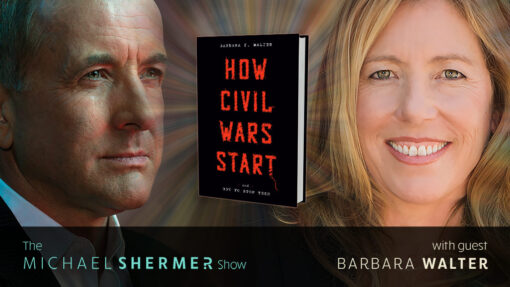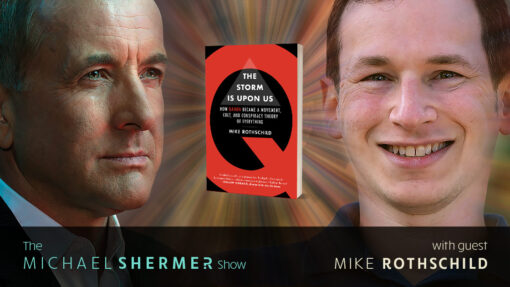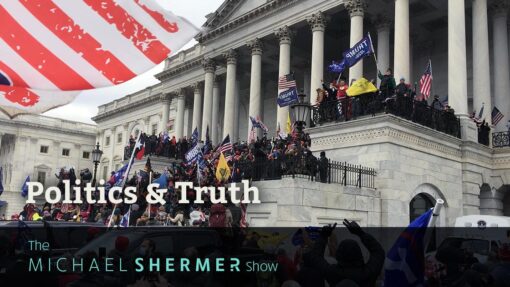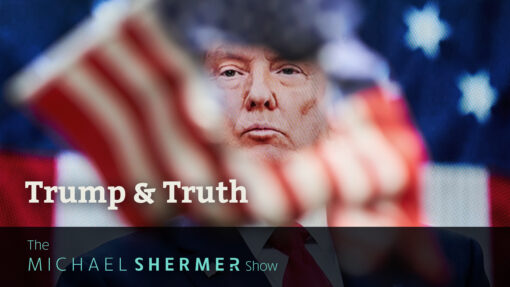assault on US Capitol

Political violence rips apart several towns in southwest Texas. A far-right militia plots to kidnap the governor of Michigan and try her for treason. An armed mob of Trump supporters and conspiracy theorists storms the U.S. Capitol. Are these isolated incidents? Or is this the start of something bigger? Michael Shermer speaks with professor of political science, Barbara F. Walter, about her increasing worry about civil conflict in the United States.
Michael Shermer speaks with Barbara F. Walter about how civil wars start and how to stop them, including in the United States.

Its messaging can seem cryptic, even nonsensical, yet for tens of thousands of people, it explains everything: What is QAnon, where did it come from, and is the Capitol insurgency a sign of where it’s going next? Mike Rothschild is a journalist specializing in conspiracy theories. He has been collecting stories for years through interviews with QAnon converts, apostates, and victims, as well as psychologists, sociologists, and academics. He is uniquely equipped to explain the movement and its followers.
In episode 213, Michael Shermer speaks with Mike Rothschild, a journalist specializing in conspiracy theories, about QAnon and its followers, based on his book The Storm Is upon Us: How QAnon Became a Movement, Cult, and Conspiracy Theory of Everything. PLUS, we present as a free PDF download the Memorial Tribute to Skeptic’s Art Director and Co-Founder, Pat Linse, which appeared in Skeptic 26.3 (2021).
In episode 152 of The Michael Shermer Show, Michael responds to critics, reminding us that whether a particular conspiracy theory is true or false very much matters — especially those in the realm of politics, economics, and ideology, which as we’ve seen matters very much to the stability of our democracy and trust in the institutions that keep society stable.

In episode 152, Dr. Michael Shermer responds to critics of episode 151, reminding us that the truth or falsity of a claim of any kind that can be adjudicated by science and reason applies not just to astrologers, psychics, UFO proponents, and Big Foot hunters (all of which we cover in Skeptic magazine), but to conspiracy theories, including and especially those in the realm of politics, economics, and ideology, which as we’ve seen matters very much to the stability of…
In this monologue commentary on the events of January 6, 2021, Dr. Shermer applies causal inference theory to Trump’s speech that morning, the violent assault on the Capitol that followed, the banning of Trump off social media platforms like Twitter and Facebook, the fears on the Right of social media censoriousness on the Left, the breaking up of big tech social media companies, and related topics, including what it means to “believe” a conspiracy theory.

In this monologue commentary on the events of January 6, 2021, Dr. Shermer applies causal inference theory to Trump’s speech that morning, the violent assault on the Capitol that followed, the banning of Trump off social media platforms like Twitter and Facebook, the fears on the Right of social media censoriousness on the Left, the breaking up of big tech social media companies, and related topics, including what it means to “believe” a conspiracy theory.












